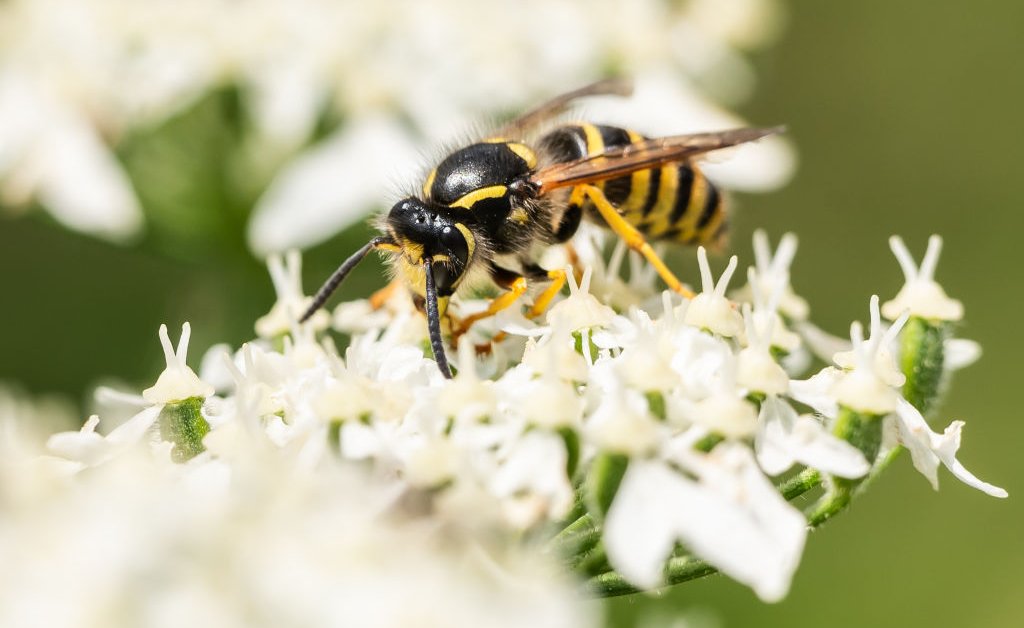The Future Of Summer Insects In A Warming World: Climate Change Impacts

Welcome to your ultimate source for breaking news, trending updates, and in-depth stories from around the world. Whether it's politics, technology, entertainment, sports, or lifestyle, we bring you real-time updates that keep you informed and ahead of the curve.
Our team works tirelessly to ensure you never miss a moment. From the latest developments in global events to the most talked-about topics on social media, our news platform is designed to deliver accurate and timely information, all in one place.
Stay in the know and join thousands of readers who trust us for reliable, up-to-date content. Explore our expertly curated articles and dive deeper into the stories that matter to you. Visit Best Website now and be part of the conversation. Don't miss out on the headlines that shape our world!
Table of Contents
The Future of Summer Insects in a Warming World: Climate Change Impacts
The buzz of summer insects – the chirping crickets, the humming bees, the droning flies – is a quintessential sound of warm weather. But this familiar soundtrack is facing a dramatic shift due to climate change, with potentially devastating consequences for ecosystems and human society. Rising temperatures, altered rainfall patterns, and more frequent extreme weather events are disrupting insect life cycles, threatening populations and biodiversity.
Understanding the Impact of a Changing Climate
Climate change affects insects in numerous ways:
-
Range Shifts: As temperatures rise, many insect species are shifting their geographic ranges towards higher altitudes or latitudes in search of cooler habitats. This can lead to competition with existing species and disrupt established ecosystems. For example, studies have shown significant northward range expansions of certain butterfly species.
-
Phenological Mismatches: The timing of life cycle events, such as insect emergence and plant flowering, is highly sensitive to temperature. Climate change is disrupting this delicate synchrony, leading to "phenological mismatches" where insects emerge at times when their food sources are unavailable. This is particularly concerning for specialist insects that rely on specific plant species.
-
Increased Mortality: Extreme heat events can cause mass insect mortality, particularly for species adapted to cooler temperatures. Droughts, another consequence of climate change, can also severely reduce insect populations by limiting food and water resources.
-
Altered Predator-Prey Relationships: Changes in insect distribution and abundance can ripple through the food web, affecting predators that rely on insects for food, including birds, amphibians, and reptiles. This disruption can have significant cascading effects on entire ecosystems.
The Role of Insects in Our Ecosystems
The implications of declining insect populations are far-reaching. Insects play crucial roles in:
-
Pollination: Many plants, including crops crucial for human food security, rely on insect pollination. Declines in bee populations, for instance, are a major concern for global food production. [Link to a relevant scientific article on bee decline].
-
Nutrient Cycling: Insects are vital decomposers, breaking down organic matter and recycling nutrients back into the ecosystem. Their decline can disrupt soil health and nutrient availability.
-
Pest Control: Many insects are natural predators of crop pests, providing a crucial ecosystem service that reduces the need for pesticides.
-
Food Source: Insects are a critical food source for many animals, forming the base of many food webs.
What can we do?
Addressing the threats to summer insects requires a multifaceted approach:
-
Mitigation of Climate Change: Reducing greenhouse gas emissions is crucial to slowing the pace of climate change and mitigating its impacts on insects. This involves transitioning to renewable energy sources, improving energy efficiency, and adopting sustainable land management practices.
-
Habitat Conservation and Restoration: Protecting and restoring insect habitats, including grasslands, forests, and wetlands, is essential for providing refuge for insect populations. This includes creating wildlife corridors to allow for range shifts.
-
Sustainable Agriculture: Promoting sustainable agricultural practices, such as reducing pesticide use and adopting crop diversification, can help support insect populations and improve biodiversity.
The future of summer insects, and indeed the health of our planet, depends on our collective action to address climate change and protect biodiversity. The symphony of summer may be silenced if we fail to act. Learn more about insect conservation efforts in your area and support initiatives that protect these vital creatures. [Link to a relevant conservation organization].

Thank you for visiting our website, your trusted source for the latest updates and in-depth coverage on The Future Of Summer Insects In A Warming World: Climate Change Impacts. We're committed to keeping you informed with timely and accurate information to meet your curiosity and needs.
If you have any questions, suggestions, or feedback, we'd love to hear from you. Your insights are valuable to us and help us improve to serve you better. Feel free to reach out through our contact page.
Don't forget to bookmark our website and check back regularly for the latest headlines and trending topics. See you next time, and thank you for being part of our growing community!
Featured Posts
-
 When Is Roland Garros The Official 2024 Tournament Schedule
May 26, 2025
When Is Roland Garros The Official 2024 Tournament Schedule
May 26, 2025 -
 Latest Updates Widespread Power Outages Impact Tulsa Metro On Saturday
May 26, 2025
Latest Updates Widespread Power Outages Impact Tulsa Metro On Saturday
May 26, 2025 -
 Oregonian Quits Job Sails 2 000 Miles To Hawaii With Feline Companion
May 26, 2025
Oregonian Quits Job Sails 2 000 Miles To Hawaii With Feline Companion
May 26, 2025 -
 Arzyaby Emlkrd Tym Astfadh Mnsfanh Dr Dywar
May 26, 2025
Arzyaby Emlkrd Tym Astfadh Mnsfanh Dr Dywar
May 26, 2025 -
 American Idol Season 23 An Eps Unfiltered Look At The Unexpected Finale And Carrie Underwoods Impact
May 26, 2025
American Idol Season 23 An Eps Unfiltered Look At The Unexpected Finale And Carrie Underwoods Impact
May 26, 2025
